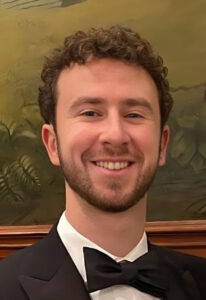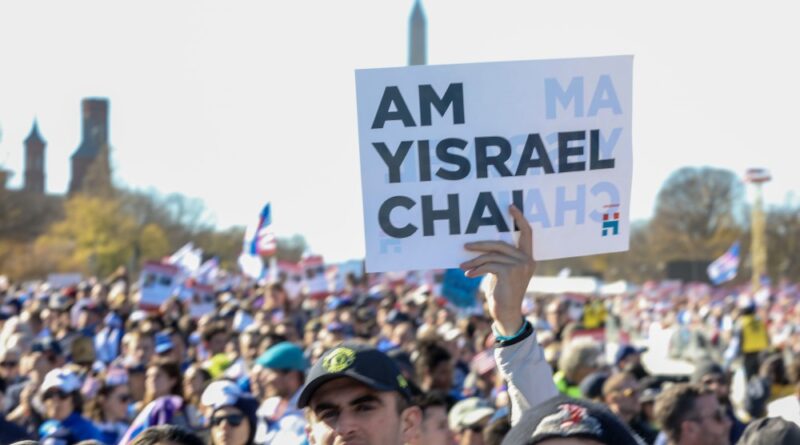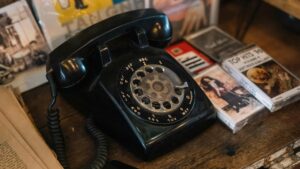This article was provided by the Beth Tfiloh Dahan Community School in Pikesville.
Around the region, high school and college students are returning from winter break after taking a much-needed timeout from classes, schoolwork and exams. These students also pressed the pause button on something no one predicted when the fall semester began: the virulent harassment, protests and boycotts on campuses in recent months as part of the fallout from the Israel-Hamas war.
The following is a pair of Jewish perspectives from a local high school student and a University of Maryland student, recounting their experiences over the past few months.
Anxiety and Disappointment
My name is Aviva Rubin and I am a 17-year-old senior at Beth Tfiloh High School in Baltimore. On Oct. 7, I was woken up by my mom who shared that something terrible happened in Israel.
It was Shabbat so I knew if my mom was checking her phone, it had to be something serious. My brother Noah was serving in the Israel Defense Forces at the time of the attack and his unit was called up to serve.
The following days were full of uncertainty, causing heightened stress and anxiety among my family members and the greater community. After various missions and operations around Israel, Noah was sent into Gaza to serve on the front lines as a sharpshooter.
Since the war began, it has been extremely difficult for me to focus on schoolwork and other responsibilities. My mind has been preoccupied with thoughts of the war and the fact that I have not been in contact with my brother in weeks.

Going to Beth Tfiloh, I have been surrounded by a supportive and understanding community. As the weeks have progressed, our school community has united, raising money for various Israeli charities and brainstorming other ways to give back.
Students wrote cards to IDF soldiers to ensure them that we are thinking of them and standing with them, even while across the world. Teachers of all subjects incorporated discussions of Israel into their classes, promoting a safe environment for students to express their feelings and realize they were not alone in their pain.
One of our teachers, Matan Shefler, was called up to serve in the IDF reserves. We kept track of his journey from afar, and this made the war real for a lot of people at Beth Tfiloh.
However, not every school is Beth Tfiloh. I have witnessed friends’ experiences in other schools around the Baltimore area, and I have been angered and disappointed at what I have seen. These friends have not received the same support from their school administrations as I have.
My fellow Jewish teens have felt unsafe in their own schools. Their classmates have often sided with the Palestinians and condemned Israel’s response to the Hamas attack on Oct. 7.
Jewish students at one local non-Jewish school hung up an Israeli flag in their hallway to show solidarity. In response, their classmates displayed a Palestinian flag right next to it. My Jewish friends asked their principal for support. Instead, both flags were taken down.
As I look ahead to four years in college, I think about the environment I want on a campus. I want it to more closely resemble Beth Tfiloh than the experience my friends are having elsewhere. As we saw from the leaders of MIT, Harvard and the University of Pennsylvania, many college leaders are refusing to stand against hate crimes toward Jewish students. There is an age-old debate about whether being anti-Israel is the same thing as antisemitic. Before the war, I would have argued it is not the same.
Now, however, I would say that it is. Antisemitism disguised as anti-Israel/pro-Palestine sentiment is rampant, especially on campuses around the country.
Finding The Light of Hope
My name is Ari Geller. Growing up, I learned about the many attempts throughout history to eradicate the Jewish people. It seemed like an important, but no longer applicable, topic. Obviously, I knew anti-Semitism still existed in the world, but growing up in the small Jewish Baltimore bubble and attending Beth Tfiloh created a safe illusion from a harsh reality.
Coming to a college campus as a freshman in 2021, I broke out of the bubble. I became immersed in an incredibly diverse culture, where people freely and unapologetically express who they are. I began wearing a kippah every day in my third semester and felt supported by the strong and vibrant Jewish community at the University of Maryland, College Park.
Since Oct. 7, the world has confused antisemitism with anti-Zionism, and now suddenly it feels like every Jew has a target on their back. Just a few weeks ago, the phrase “Holocaust 2.0” was written on the ground on my campus, expressing that Holocaust inversion is somehow OK.
In the Wisconsin capital of Madison, neo-Nazis recently marched through the streets carrying large swastika flags. Unbelievably, these events are becoming more and more normal. The war in Gaza has truly transformed into an all-front, worldwide fight against antisemitism playing out on college campuses across the country.

As terrible as the past few months have been, I never before have been so proud to be part of such a strong and incredible Jewish community. Two days after the Oct. 7 attack, we hosted a campus vigil in honor of the victims, and more than 1,200 people attended. In the following weeks, we raised more than $25,000 for Magen David Adom, Israel’s version of the Red Cross.
“Shabbat 1,000” at the University of Maryland brought together more than 900 students for a communal Shabbat dinner. We held a memorial exhibit in the middle of campus honoring the people being held hostage by Hamas. Letter-writing campaigns to IDF soldiers were underway; students were seeking any way to get involved in the effort to support Israel.
In November, I attended the “March for Israel” in Washington D.C., along with roughly 300,000 others, marking the largest pro-Israel gathering in American history.
The more antisemitism I witness around the world, the more I am motivated to increase my advocacy efforts. Our campus Hillel has become livelier, people are checking in on each other, we are continuing fundraisers, and we are sharing our voices.
Although I remain worried for the safety of everyone in Israel and Jews across the world, the strength of our community gives me so much hope. Just as the Chanukah story showed us, it is possible to find light within the darkness.





